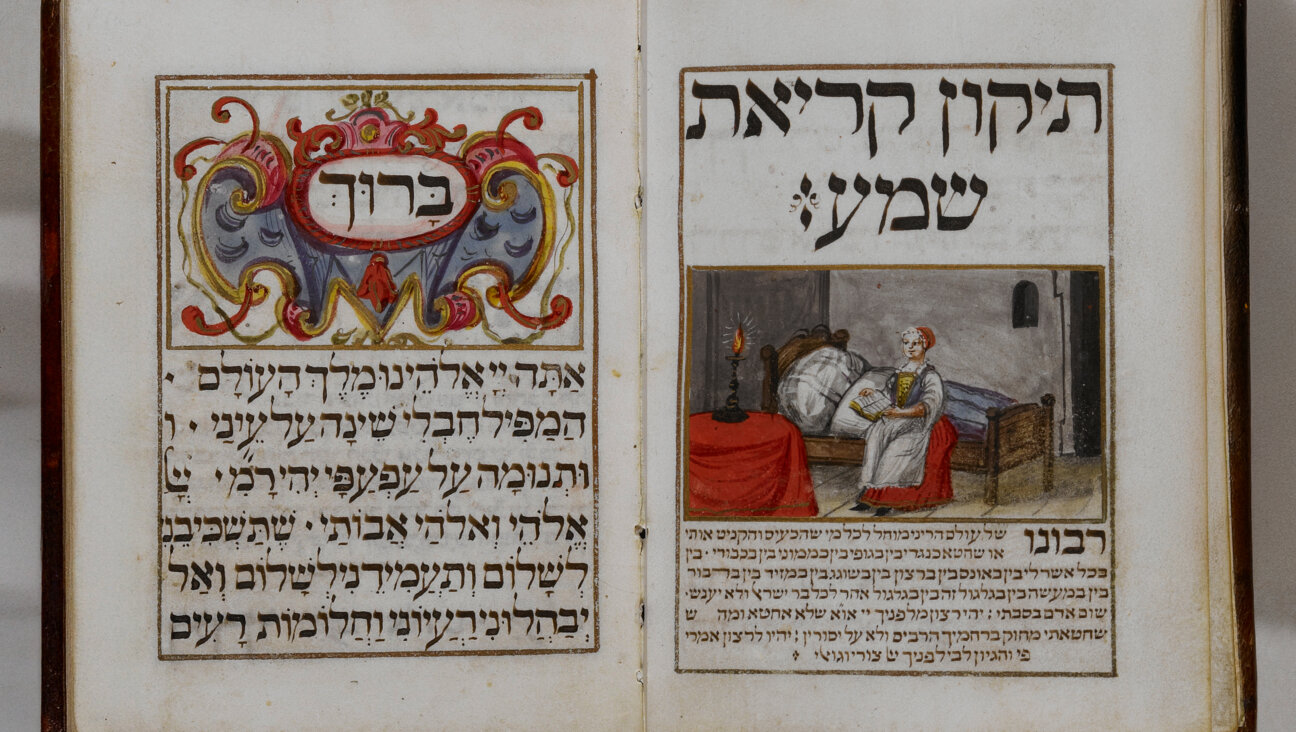Now in English, an almost-forgotten story by Sholem Aleichem

Image by Riverside Films
We know the usual occupations in Sholom Aleichem’s fiction: dairyman, butcher, tailor. But did you hear the one about pickpockets (or “nimble fingers”), robbers (“snatchers”) and horse thieves? If not, don’t worry — most haven’t.
As far as we know, Sholom Aleichem, the beloved Yiddish author best-remembered for his Tevye stories, only wrote about such unsavory characters once in a short novel, “Moshkeleh Ganev” or “Moshkelah the Thief,” which was left out of his 28-volume collected works. Why the author’s family chose not to include the work is a mystery, but we can speculate it had something to do with the subject matter.
“Yiddish literature had been steeped in the gentility or ‘edelkeyt’ (refinement) mode for a long time,” said Curt Leviant, who recently rediscovered “Moshkeleh,” first serialized in a Warsaw Yiddish paper in 1903, and translated its first-ever English edition. “So blatant sex, violence, grisly situations just were not included. Even though pogroms were experienced by a lot of people, the real results of pogroms were not depicted.”
While “Moshkeleh” doesn’t have much violence or sex, it does violate edelkeyt by giving a leading role to a horse thief on the fringes of his community in the Russian Pale of Settlement and addressing aspects of Eastern European Jewish life that were left unmentioned for respectability’s sake. There’s even a wonderful sequence surrounding the mad dash of villagers to a wine cellar during Passover.
Sholom Aleichem seems to thrill at using the argot of petty criminals and to have regarded the story as a creative breakthrough, writing in a letter that, with this project, he had “really begun to write” (emphasis his.)
The plot concerns Moshkeleh, a horse thief like his father and a young man of incredible strength, who is recruited by a bourgeois tavern keeper to bring back his daughter, Tsireleh, who eloped to a monastery with a non-Jewish tax collector. The tavern keeper’s family’s treatment of Moshkeleh can be read as an indictment of “refined” Jews. Moshkeleh challenges the snobbery of his town, and it’s hard not to root for him as he tries to rise above his station — or enjoin Tsireleh to join him.
Leviant, a novelist in his own right, believes that “Moshkeleh,” rich with colorful characters and non-sequitur side stories, bears Sholom Aleichem’s trademarks while revealing a more complete view of the various kinds of Yidden in the Old Country as well as their non-Jewish neighbors.
“Fans of Sholom Aleichiem will appreciate the surprise of seeing Jews they’ve never met before in Sholom Aleichem unfolding before them,” Leviant said.

















